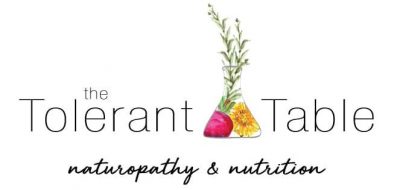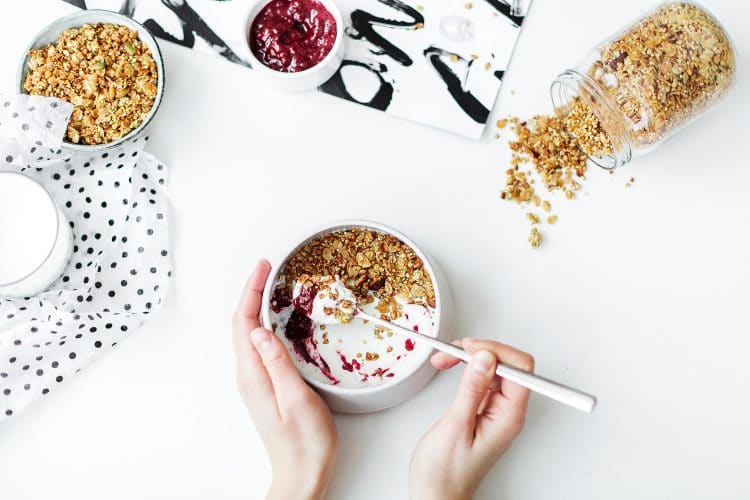Whether there is a difference between prebiotics and probiotics is something clients ask me often. There is generally a lot of confusion around the terms and whether including both prebiotics and probiotics is necessary.
Probiotics have certainly been having their time in the spotlight. I would say at this point most people are at least familiar with the term. They may also have started to include a probiotic supplement or probiotic-rich foods into their diet. Or, at the very least, their interest to do so has been piqued.
Prebiotics on the other hand are much less known. Given the increasing interest and focus on gut health though – they’re definitely something we should be aware of. Do you know the difference between prebiotics and probiotics? It can definitely cause some confusion so let’s break it down and have a look at them both.
What exactly is a probiotic?
Probiotics are live bacteria and yeasts found naturally in the gut, as well as in certain foods and supplements. You may be very familiar with some of the probiotic bacterial strains that are known to be particularly beneficial. These include Bifidobacterium and Lactobacillus (the two often found in yoghurt). Saccharomyces is another however, this is a yeast and often used solely in supplement form (1).
It is the job of these various probiotic strains to help keep the bacteria in our gut balanced. They do this by promoting ‘good’ bacteria, and limiting the growth of harmful bacteria. Factors such as diet, stress, infection and antibiotics can all upset the balance of good bacteria in the digestive system so including probiotic foods and supplements can help restore harmony and digestive health (2).
It’s also important to note that probiotics are transient. This means that they don’t colonise (or stay) in the gut, but they do interact in a positive way with microbes that are present there. As they pass through the gut, they interact with gut and immune cells along with food particles delivering their health benefits along the way.
Research has shown that when probiotics are taken in adequate amounts, they can:
- Support digestive health and function
- Boost immune function
- Produce vitamins that improve overall health
- Improve resilience to infections
- Reduce antibiotic‐associated diarrhoea
- Improve skin health in conditions such as eczema (through promoting better gut health)
- Additionally, a growing body of evidence also highlights that probiotics may be beneficial in weight management, glycaemic control, depression and anxiety (2,3).
Foods that contain probiotics include things like:
- Yoghurt
- Milk or water kefir
- Fermented vegetables (sauerkraut, kimchi, sour pickles etc.)
- Tempeh
- Miso
- Parmesan (or other cheeses that have been aged/fermented)
- Sourdough
So what’s a prebiotic then?
In very simple terms, prebiotics are food that probiotics need to thrive. They are a type of non-digestible fibre/carbohydrate found in certain foods, that work to stimulate and fuel the growth of probiotics helping them exert their beneficial effects on the body. That’s not to say that all fibre is necessarily a prebiotic though, it is largely soluble fibre that fulfils this role (4).
Aside from their beneficial effects on probiotic strains, evidence regarding the health effects of prebiotics on the body continues to emerge. Research has shown that a diet rich in prebiotics can boost mineral absorption in the gut, help reduce intestinal inflammation along with helping to stabilise blood sugar levels too.(5)
Prebiotics occur naturally in foods such as:
- Fruit (like apple skins, custard apples, green bananas and persimmon)
- Grains (like barley, oats and rye)
- Legumes (like chickpeas, lentils, red kidney beans and soybeans)
- Nuts and seeds (like cashews, pistachios and flaxseeds)
- Vegetables (like asparagus, carrots, chicory, garlic, Jerusalem artichokes, leeks and onions)
Should I take a prebiotic, a probiotic or both?
The short answer there is both! I frequently find people taking a probiotic supplement or including lots more probiotic food in their diet but giving no thought to increasing their prebiotic intake. As we now know – prebiotics are the food that probiotics need to thrive so if you’re taking one, or trying to ensure you get more probiotic food into your day, you’ll absolutely want to be upping the prebiotic foods you have too. You will get most benefit from your probiotic if you do!
A note on probiotic supplements vs food
I definitely have a food first approach in my clinic but that being said – there are times probiotic supplements may also be needed. Including an array of fermented foods in your diet is a wonderful thing and something I would always encourage. However, we can never truly know just how much of one particular probiotic strain a food contains and there are times a much higher dose is required to produce the therapeutic effect we’re after. This is often the case when working with conditions like leaky gut, inflammatory bowel disease, intestinal inflammation, traveller’s diarrhoea or gut related skin conditions as examples. In these instances I would recommend both probiotic foods and probiotic supplements for a period of time.
Looking to improve your gut health or address a chronic gut disorder? I’d love to work with you on restoring digestive wellbeing so if you’re ready to book in for a consultation you can do so HERE.

